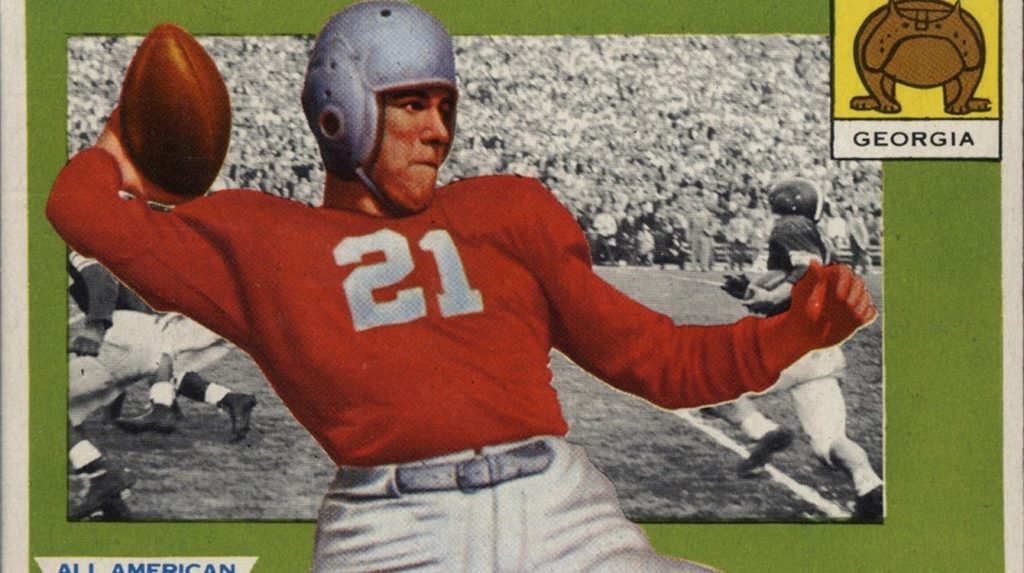
This Week in Heisman History: Frank Sinkwich has record day against Cincinnati

Few football players in the 1940s were as explosive and productive on the offensive side of the ball as Frank Sinkwich was for the University of Georgia.
As a near-unanimous All-American junior in 1941, Sinkwich, a single-wing tailback, set an SEC rushing record with 1,103 yards (which stood for eight years) and gained 713 yards passing for a new SEC total offense record of 1,816 yards. He did so despite playing from the third game on with a broken jaw protected by a custom-made facemask.
Sinkwich was even better as a senior and his remarkable performance against undefeated Cincinnati on Oct. 24, 1942, was proof of just how dominant he could be. This week in Heisman history, Sinkwich accounted for five touchdowns in a 35-13 Georgia victory over the Bearcats.
Playing not far from his hometown of Youngstown, Ohio, Sinkwich was brilliant from the opening kickoff. In the first quarter alone, he scored on a 3-yard run, threw a 90-yard touchdown pass to Lamar Davis and then hit paydirt from 24-yards out after speeding around right end. In the third quarter, he burst into the clear for a 42-yard touchdown run and then struck again in the fourth quarter as Davis hauled in another bomb, this one for 80 yards.
Sinkwich played a little more than a quarter, but ended the game with 227 yards and two touchdowns through the air and 136 yards and three touchdowns on the ground. His 363 yards running and passing was a then-SEC record for total offense in a single game. When the game was over, a local newspaper reported that the attending crowd stood up and gave “Flashy Frank” a rousing cheer.
He finished the 1942 season with 795 yards rushing and set the SEC passing record with 1,392 yards, a mark that stood for eight years. He set the national total offense record with 2,187 yards, too. At season’s end, Georgia was the national champ and Sinkwich was a unanimous All-America choice. He was chosen as Georgia’s first recipient of the Heisman Trophy, the first winner from an SEC school.
Perhaps most impressive was the fact that his 27 total touchdowns that season was the most by a Heisman winner until Mike Rozier accounted for 29 in 1983.




